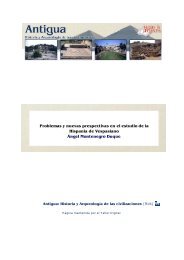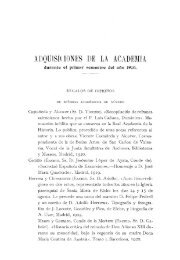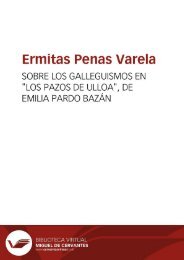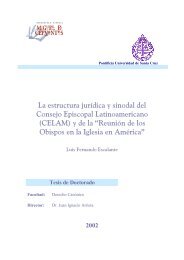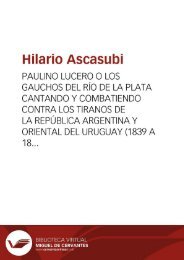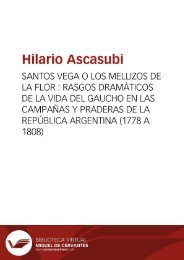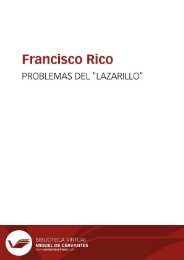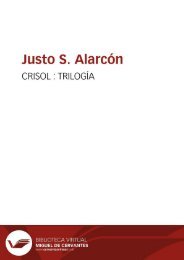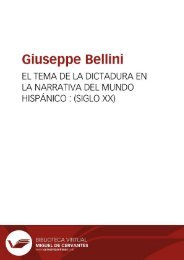You also want an ePaper? Increase the reach of your titles
YUMPU automatically turns print PDFs into web optimized ePapers that Google loves.
<strong>Galdós</strong> and Mass Psychology<br />
Clark M. Zlotchew<br />
Senatores boni viri; senatus autem mala bestia .<br />
( Ancient maxim .)<br />
Anales galdosianos [Publicaciones periódicas]. Año XII, 1977<br />
The present era of mass communication and social unrest places a high priority on the understanding<br />
of group psychology. Sociologists and psychologists study the phenomenon while the advertising<br />
agencies and statesmen give practical application to the knowledge gathered by the socio-<br />
psychologists. The roots of this science can be traced to the nineteenth century, principally to the<br />
Italian school of positive criminology, the founder and chief exponent of which is generally held to<br />
be Enrico Ferri 1 . Ferri's major departure from the classical school of criminology, with significant<br />
consequences for the yet unborn science of mass psychology, is contained in the idea that the joining<br />
together of generally intelligent individuals into a group does not guarantee the intelligence of the<br />
resulting assembly. This is so because, psychologically speaking, «the union of individuals never<br />
gives, as it would seem it should, a total equal to the individual value of each of them» 2 . Equally<br />
significant is his affirmation that emotion predominates over rationality in a group endeavor. 3<br />
While Ferri's statements referred principally to the composition and psychology of juries, his<br />
disciple, Scipio Sighele, applies these concepts to mobs as well and greatly expands upon them in<br />
La Folla delinquente (1892) 4 . Other writers, in France as well as Italy, write of the psychology of<br />
1 William W. Smithers states, «Enrico Ferri, founder of criminal sociology...». Enrico Ferri, Criminal<br />
Sociology , translated by Joseph I. Kelly and John Lisle, edited by William W. Smithers with an<br />
introduction by Charles A. Ellwood and Quincy A. Myers (New York: Agathon Press, Inc., 1967),<br />
p. xxi. « the founding in Italy of a new school of positive criminal law, of which Ferri is himself the<br />
chief exponent.» Ibid. , p. xxiii.<br />
2 Ibid. , p. 486.<br />
3 «This predominance of sentiment over reason, which is the fundamental note of the jury...» Ibid. ,<br />
p. 489.<br />
4 Scipio Sighele, La Folla delinquente (Torino: Fratelli Bocca, 1892). A wide diffusion of this book<br />
may be assumed because only a few months after the first Italian edition the French edition appeared<br />
as La Foule criminelle . Perhaps one of the more significant statements by Sighele is: « Un'antica<br />
9




